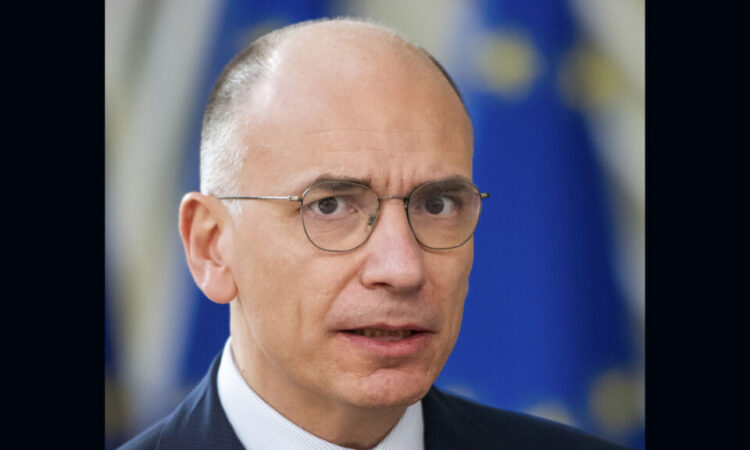
The “exit” narratives that once dominated the political discourse in the European Union are now a thing of the past, but these European Parliament elections will judge the degree of commitment to the further integration of the bloc, former Italian prime minister Enrico Letta tells Kathimerini.
Letta, who prepared a report on the future of the EU’s single market titled “Much More Than a Market” (April 2024), emphasizes that the current macroeconomic and geopolitical environment makes it even more imperative to unify Europe’s capital markets, as a reform that will increase financing and reduce costs, making the European market more attractive for businesses.
He also describes the factors that keep investments in Europe at low levels and in this sense must be the focus for the next term of European institutions.
Why is a single capital market important? How can it practically improve the position of the EU in international competition?
A single capital market is crucial for several reasons. Firstly, it ensures a more efficient allocation of capital across member-states, reducing fragmentation and enabling businesses to access funding more easily and at lower costs. This increased efficiency can enhance the competitiveness of European firms, allowing them to innovate and expand more effectively on a global scale. Secondly, a unified market can attract international investors by offering a larger, more liquid, and diversified investment landscape, thus enhancing the EU’s attractiveness as an investment destination. By fostering a more integrated and resilient financial system, the EU can better withstand economic shocks and geopolitical tensions, thereby strengthening its position in international competition.
How do you assess the political risk for the completion and successful implementation of the project? Do these European elections have a role to play?
The political risk for completing and successfully implementing a single capital market project is significant, but not insurmountable. The upcoming European elections play a crucial role in this context. Historically, the EU has faced challenges like Brexit and rising euroskepticism, which threatened its cohesion. However, the current electoral climate appears more favorable, with a notable shift away from exit narratives. The pragmatic approach of former euroskeptics and the focus on substantive policy debates suggest a more stable political environment. Nevertheless, achieving consensus among diverse member-states remains a challenge, and the elections will determine the balance of power and the level of commitment towards deeper integration and market reforms.
The debate on unhindered access to capital for businesses is taking place in an environment of – still – high interest rates and heightened geopolitical tensions. What does the current international environment mean for single capital market reform?
The current international environment presents both challenges and opportunities for single capital market reform. High interest rates can increase the cost of borrowing, potentially slowing down investment. However, a well-integrated capital market can mitigate this by providing diversified funding sources and reducing reliance on traditional banking channels. Geopolitical tensions underscore the need for a robust and unified financial system that can better manage risks and enhance the EU’s strategic autonomy. Therefore, while the international environment adds complexity to the reform process, it also highlights the urgency and importance of creating a resilient single capital market.
More broadly, what other factors do you think are holding down investment in Europe and should concern the next term of the European institutions?
Several factors are currently holding down investment in Europe, and these should be a focus for the next term of European institutions. Firstly, regulatory fragmentation across member-states creates barriers to investment, increasing costs and complexity for businesses operating in multiple countries. Secondly, the lack of a unified digital and green infrastructure inhibits the growth of innovative industries. Thirdly, labor market rigidity and skills mismatches limit productivity and innovation. Additionally, uncertainties surrounding fiscal policies and the sustainability of public finances can deter long-term investments. Lastly, the need for substantial funding to support the green and digital transitions requires a strategic approach to mobilize both public and private resources effectively.
Reflecting on the past and current political climate, there is optimism for the EU’s future post-elections. Unlike previous elections dominated by exit narratives, the current discourse is more pragmatic and focused on practical policy issues, including how to finance the crucial green, just, and digital transitions. This focus is essential, as these transitions require significant investment and overcoming social, political, and administrative challenges. The report “Much More Than a Market” emphasizes the need for innovative financing solutions, such as the proposed “Union of Savings and Investments,” to mobilize necessary resources. The upcoming term should prioritize finding effective and concrete responses to these financial challenges to ensure the successful implementation of EU policies and foster economic growth and innovation.






